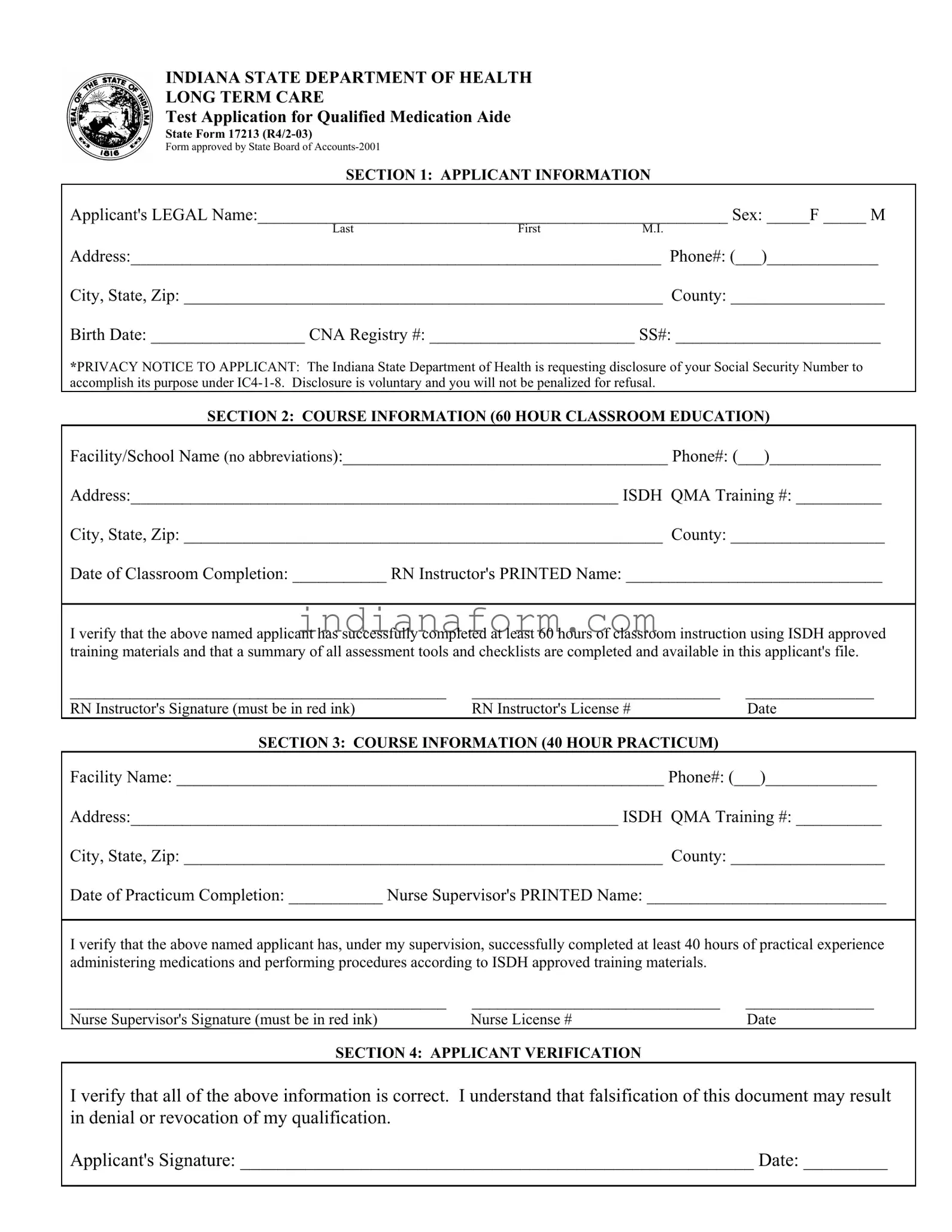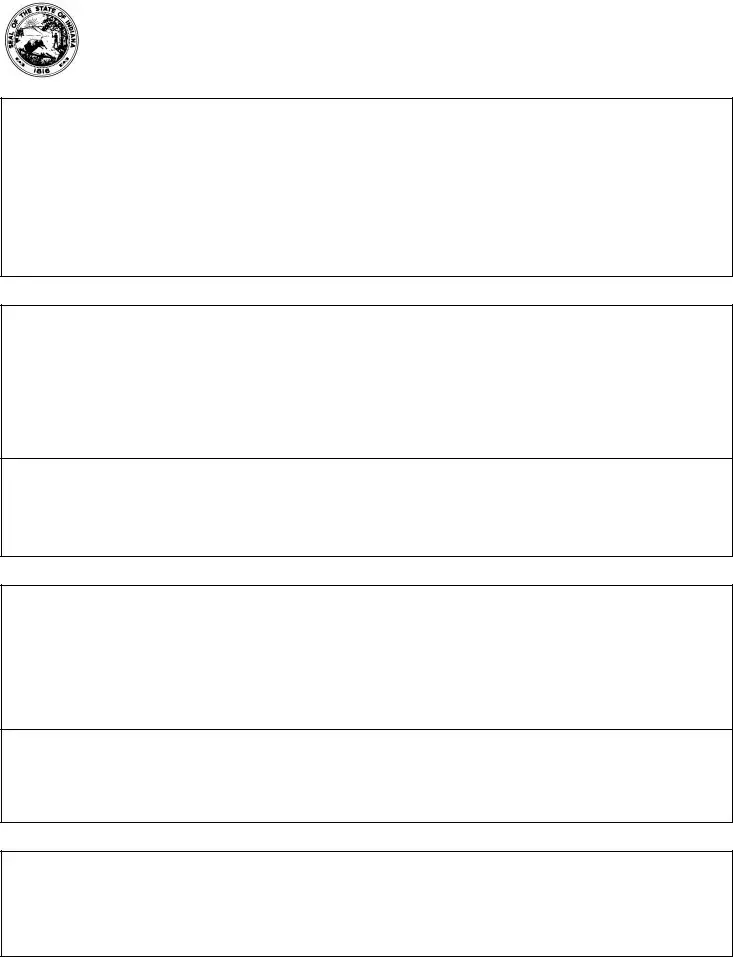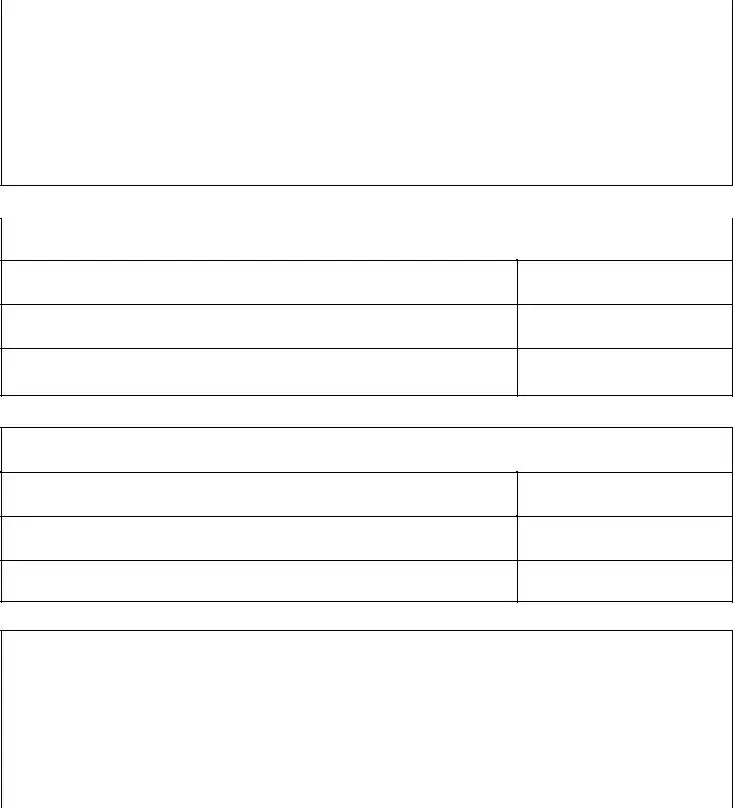INDIANA STATE DEPARTMENT OF HEALTH
LONG TERM CARE
Test Application for Qualified Medication Aide
State Form 17213 (R4/2-03)
Form approved by State Board of Accounts-2001
SECTION 1: APPLICANT INFORMATION
Applicant's LEGAL Name:_______________________________________________________ Sex: _____F _____ M
LastFirstM.I.
Address:______________________________________________________________ Phone#: (___)_____________
City, State, Zip: ________________________________________________________ County: __________________
Birth Date: __________________ CNA Registry #: ________________________ SS#: ________________________
*PRIVACY NOTICE TO APPLICANT: The Indiana State Department of Health is requesting disclosure of your Social Security Number to accomplish its purpose under IC4-1-8. Disclosure is voluntary and you will not be penalized for refusal.
SECTION 2: COURSE INFORMATION (60 HOUR CLASSROOM EDUCATION)
Facility/School Name (no abbreviations):______________________________________ Phone#: (___)_____________
Address:_________________________________________________________ ISDH QMA Training #: __________
City, State, Zip: ________________________________________________________ County: __________________
Date of Classroom Completion: ___________ RN Instructor's PRINTED Name: ______________________________
I verify that the above named applicant has successfully completed at least 60 hours of classroom instruction using ISDH approved training materials and that a summary of all assessment tools and checklists are completed and available in this applicant's file.
____________________________________________ |
_____________________________ |
_______________ |
RN Instructor's Signature (must be in red ink) |
RN Instructor's License # |
Date |
SECTION 3: COURSE INFORMATION (40 HOUR PRACTICUM)
Facility Name: _________________________________________________________ Phone#: (___)_____________
Address:_________________________________________________________ ISDH QMA Training #: __________
City, State, Zip: ________________________________________________________ County: __________________
Date of Practicum Completion: ___________ Nurse Supervisor's PRINTED Name: ____________________________
I verify that the above named applicant has, under my supervision, successfully completed at least 40 hours of practical experience administering medications and performing procedures according to ISDH approved training materials.
____________________________________________ |
_____________________________ |
_______________ |
Nurse Supervisor's Signature (must be in red ink) |
Nurse License # |
Date |
SECTION 4: APPLICANT VERIFICATION
I verify that all of the above information is correct. I understand that falsification of this document may result in denial or revocation of my qualification.
Applicant's Signature: _______________________________________________________ Date: _________
SECTION 5: CANDIDATE STATUS
□ 100 HOUR CLASS |
□ Out-of-State QMA - State: ______________________________________ |
□ Psychiatric Attendant |
□ Nursing Student - School: ______________________________________ |
□ Other: _________________________ |
□ Foreign Nurse - Country: ______________________________________ |
|
|
|
SECTION 6: DOCUMENTATION |
The following required documents are included with this request to test: |
□ Original Application |
□ Copy of High School Diploma, GED or transcript |
□ Original documentation of practicum |
□ Copy of current Indiana Nurse Aide Registry certification letter |
Nursing Students and Out-of-State QMAs must also include:
□ Original ISDH approval letter & all documentation initially submitted to ISDH
Include testing fee of $60.00 (money order) payable to Professional Resources. Personal checks are not accepted. Send all documentation and fee to: Professional Resources, PO Box 1552, Valparaiso, IN 46384-1552
FIRST TESTING |
SECTION 7: TEST RESULTS |
Test Entity |
|
WRITTEN TEST RESULTS: |
PASS ______ |
FAIL _______ |
SECOND TESTING
Test Entity
WRITTEN TEST RESULTS: |
PASS ______ |
FAIL _______ |
THIRD TESTING
Test Entity
Tester |
|
|
Test Date |
|
|
|
|
Test Site |
|
|
County |
|
|
|
|
WRITTEN TEST RESULTS: |
PASS ______ |
FAIL _______ |
SCORE:_______ |
|
|
|
|



